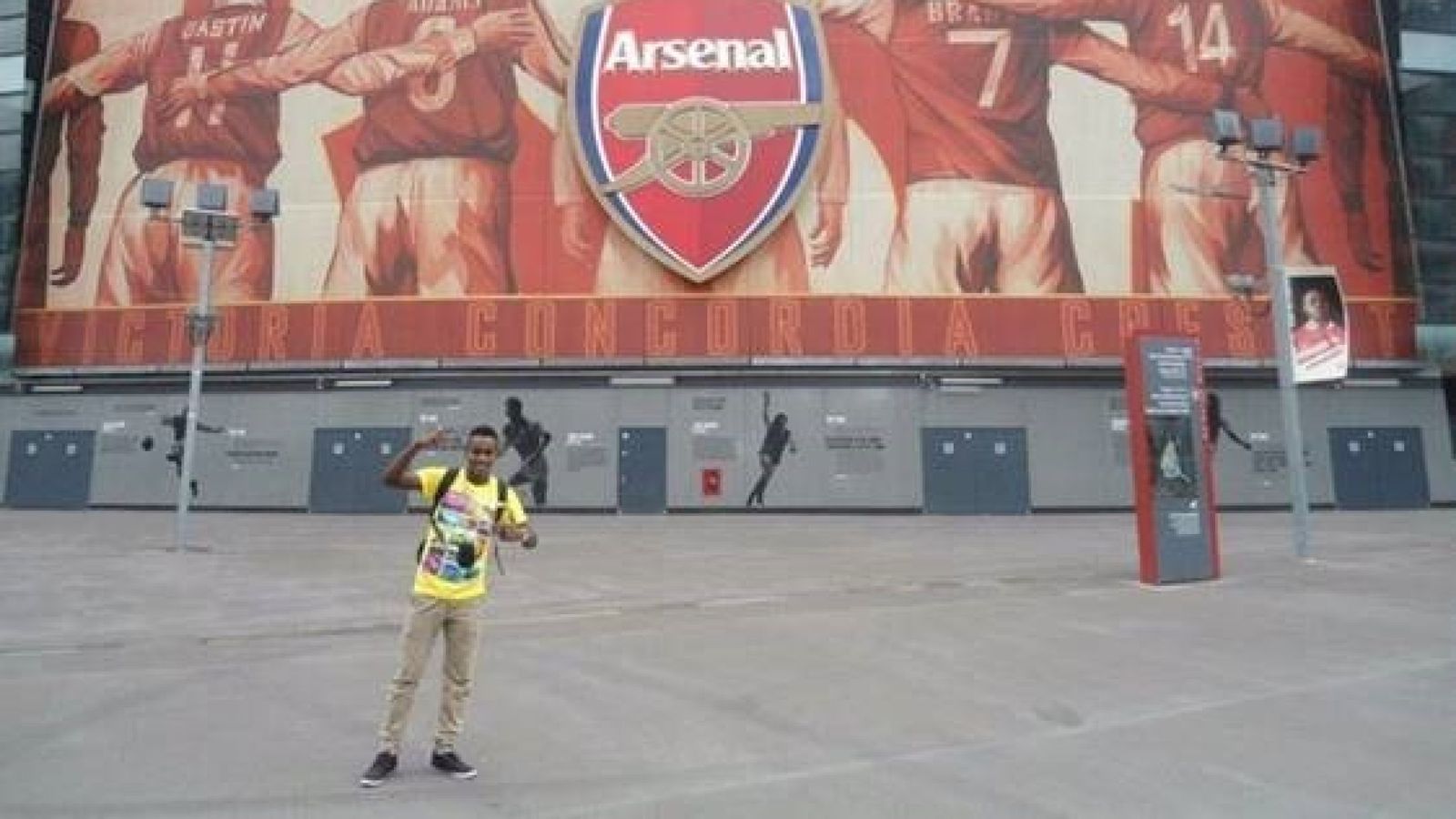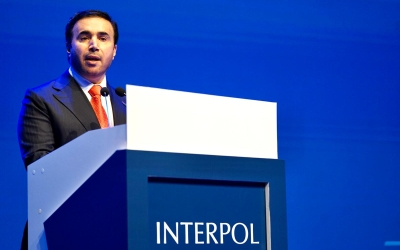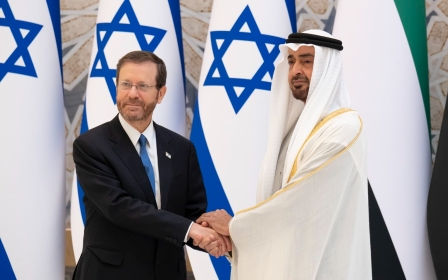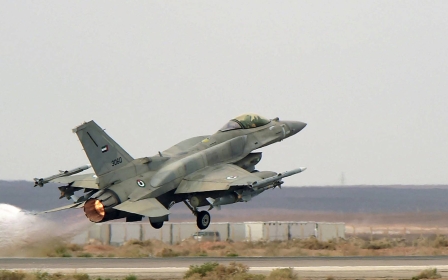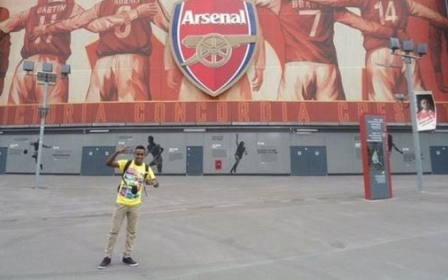UAE: British man given approval for lawsuit against Emirati Interpol chief
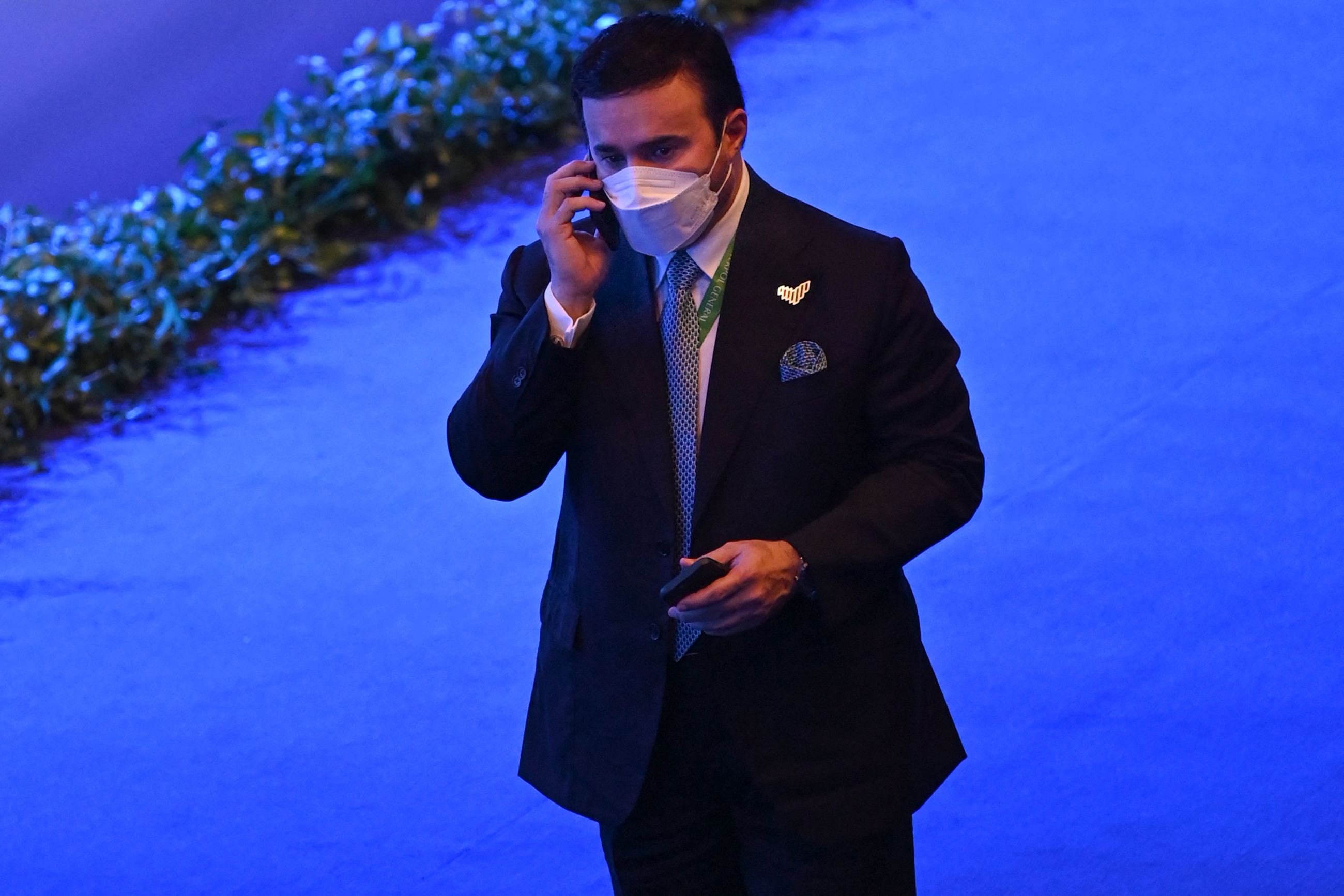
A British man has been given approval by the country's High Court to sue the current Emirati head of Interpol over abuse he suffered while detained in the UAE in 2019.
Ali Issa Ahmad was detained in Abu Dhabi between 23 January and 12 February 2019, supposedly as a result of wearing the football shirt of UAE's arch-rival Qatar - a charge the UAE has denied.
Ahmed Naser al-Raisi, who was elected president of Interpol in November - the body that facilitates international cooperation between police agencies - was inspector general of the Ministry of Interior in the UAE during the period of Ahmad's detention.
The High Court in London granted Ahmad, who is being represented by solicitors Carter-Ruck, permission to serve the claim out of UK jurisdiction late last month. Ahmad told Middle East Eye on Wednesday that the ruling was "great news".
New MEE newsletter: Jerusalem Dispatch
Sign up to get the latest insights and analysis on Israel-Palestine, alongside Turkey Unpacked and other MEE newsletters
"When I heard the court news I felt positive and stronger. I do trust the justice system in the United Kingdom, therefore I felt positive and stronger," he said.
"Sometimes I feel tired and hopeless but the court news makes me stronger and determined to achieve justice."
Raisi, who remains inspector general, is one of six senior Emirati officials being sued for damages by Ahmad, including Major General Faris Khalaf al-Mazrouei, commander-in-chief of the Abu Dhabi Police; Major General Saif al-Zari al-Shamsi, commander-in-chief of the Sharjah Police; and Counsellor Saqr Saif al-Naqbi, head of State Security Public Prosecution in Abu Dhabi.
Raisi has been accused by rights groups of having overseen numerous abuses in the Gulf state, including torture, sexual abuse, arbitrary detention and enforced disappearances.
However, a letter seen by The Guardian, which was sent from the UAE foreign office to Ahmad's lawyer, claimed the six officials had diplomatic immunity and that the English courts had no jurisdiction.
During his time in prison, Ahmad was subjected to racial and psychological abuse and torture, including being beaten, electrocuted, cut and burned. At one point he was sent to a doctor and forced to sign a form saying that the injuries he suffered, including having one of his teeth knocked out, were self-inflicted.
Ahmad also said that the day before he was due to appear in court in the UAE - where a judge accused him of "wasting police time" - he was stabbed in the dark by an unknown assailant while in detention.
He said in May 2021 that he had decided to take legal action as a result of a lack of support from the UK government.
He said he still suffers from sleeping problems, "remembering my torture in the UAE even after three long years".
"Always the victim is suffering and holding in hope, always the victim is crying alone and feeling the pain in his soul. However, in the end, the justice verdict gives the victim joyful tears. I believe I am coming closer to my joyful tears."
Although the Foreign Office has complained to the UAE about Ahmad's treatment, no response has been forthcoming. MEE contacted both Interpol and the UAE embassy in London for comment, but had received no response by the time of publication.
'Subject to misuse'
Raisi was elected president of Interpol at the organisation's 89th general assembly in Istanbul last November.
The Emirati official had undertaken international tours to lobby for his candidacy, and in recent years the UAE has invested heavily in Interpol. In 2017, it pledged $56m to the organisation, approximately a third of the force's annual budget, leading several human rights groups to accuse the UAE of trying to buy influence.
Campaigners have warned Raisi's appointment could further open up Interpol to abuse by repressive governments around the world.
"Interpol is a valuable and critical organisation for fighting transnational crime, but due to some deficiencies within its own system, it is also subject to misuse and abuse by autocratic regimes," said Sandra Grossman, a solicitor who has testified in the US Senate about the abuse of Interpol red notices by states as a means of transnational repression.
Speaking to MEE in November, she said there were a number of states "who utilise the significant power of the red notice to hunt for political opponents outside of their borders".
She also noted that Interpol Secretary General Jurgen Stock had attempted, around the time of Raisi's election, to emphasise that the Emirati police chief would largely have a symbolic role as president.
"I think the Secretary General’s comments significantly downplay the power of the role of the president and the symbolic significance of electing someone like Raisi, who has been accused of torture by what I understand to be several reputable human rights organisations and individuals," she said.
Middle East Eye delivers independent and unrivalled coverage and analysis of the Middle East, North Africa and beyond. To learn more about republishing this content and the associated fees, please fill out this form. More about MEE can be found here.


